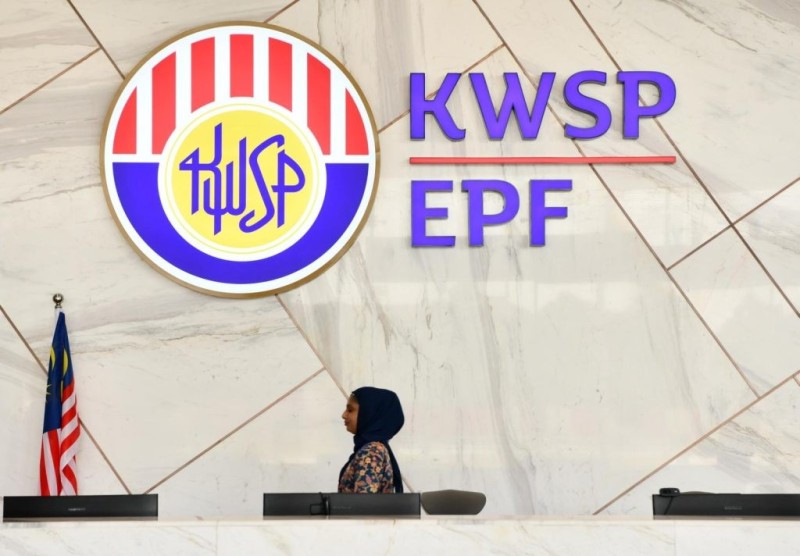
THE Employees Provident Fund’s (EPF) declared 6.3% dividend for both Conventional and Shariah savings for 2024 is reflecting a strong investment performance, resilience and commitment to long-term wealth preservation for over 16 million of its members.
As one of the most stable and well-managed retirement funds globally, EPF ensures that Malaysians continue to benefit from sustainable returns, even amid shifting economic landscapes.
The latest pay-out reflects EPF’s ability to adapt to market conditions while maintaining consistent, long-term wealth preservation.
For the financial year ended Dec 31, 2024, EPF’s total pay-out stood at RM73.24 billion, an increase from RM57.81 billion in the previous year. This included RM63.05 billion for Conventional savings and RM10.19 billion for Shariah savings.
The increase in dividend distribution reflects EPF’s robust portfolio strategy and the strong recovery of global and domestic markets. The fund’s total investment assets also expanded to RM1.25 trillion, with 63% allocated to domestic investments, generating RM37.02 billion — 49.7% of total investment income.
Beyond delivering strong returns, EPF plays a crucial role in Malaysia’s economic ecosystem by supporting capital markets and fostering national growth.
For millions of Malaysians relying on EPF for their retirement savings, this consistent performance provides reassurance of long-term financial security.
Economist Dr Nungsari Ahmad Radhi commended EPF’s ability to generate stable returns, noting that both its domestic and international portfolios performed well in 2024, with the international segment seeing slightly stronger gains.
“EPF’s performance is highly commendable, as is usually the case. In 2024, both its domestic and international portfolios performed well, with the international portfolio doing slightly better,” he said in a written reply to The Malaysian Reserve (TMR).
Beyond its role as a retirement fund, EPF plays a vital role in fuelling business expansion and economic development.
“2024 was also a bumper year for Bursa Malaysia, with 51 new companies going public. This reflects a robust market for businesses seeking capital — an area where EPF plays a significant role as a major supplier of funding,” he said.
He further highlighted EPF’s dual role — not just as a retirement savings institu tion but also as a key player in Malaysia’s economic development, supporting capital market expansion and corporate growth.
By channelling capital into new and exist ing businesses, EPF ensures continued corporate growth and economic vibrancy, benefitting both contributors and the broader financial ecosystem.
Meanwhile, market analyst Muham mad Nabil Affendy Rizal echoed similar sentiments, explaining how EPF’s reinvest ment strategy fuels business growth and strengthens investor confidence in Malay sia’s capital markets.
“As domestic investments — comprising 63% of EPF’s assets under management — contributed RM37.02 billion, or 49.7% of total investment income, I believe this will boost confidence in Malaysia’s capital market,” he told TMR.
He added that government-backed initiatives, such as the National Energy Transition Roadmap (NETR) and the JohorSingapore Special Economic Zone action plans, further support Malaysia’s economic resilience.
In addition to strengthening the market, EPF’s reinvestment strategy ensures that more funds are channelled into domestic businesses, fuelling growth and expansion.
“More money for EPF to reinvest in domestic businesses will spur the growth of these businesses, creating a positive economic cycle,” Muhammad Nabil added.
Nonetheless, EPF’s investment spans multiple key industries, including banking, telecommunications, energy, infrastructure, and real estate, ensuring economic resilience.
These investments not only generate strong and sustainable returns for EPF members but also ensure business sustain ability, infrastructure development and Malaysia’s overall economic progress.
By maintaining a strategic and diversified investment portfolio, EPF ensures that Malaysia’s key industries remain resilient, competitive and well-capitalised for future growth.
While global economic uncertainties persist — including potential trade tensions from major economies like the US and China — EPF remains well-positioned to weather market volatility.
“While we are surrounded by global uncertainties, I believe EPF has a large reserve to cushion these challenges during economic downturns, while still being able to provide stable returns and dividends over the years,” Muhammad Nabil added.
Nungsari also emphasised that regional economic integration will play a crucial role in hedging against external risks, reinforcing EPF’s diversified approach to managing economic shifts effectively.
Ultimately, EPF’s 6.3% dividend payout continues to reflect its global investment standards and ability to deliver sustainable longterm value to its members.
Despite fluctuations in annual rates, EPF remains one of the most sustainable and well-managed pension funds in the world, adapting to market challenges while maintaining financial security for Malaysians.
For millions of Malaysians, this means peace of mind knowing that their retirement savings are managed with global investment standards, strategic foresight and economic resilience.
As Malaysia moves forward into 2025, EPF’s ability to navigate market challenges, reinvest in key industries and maintain strong financial reserves ensures that it continues to drive economic growth while protecting the retirement aspirations of its members.
Source: https://themalaysianreserve.com/2025/03/17/epf-continues-driving-economic-growth-safeguarding-retirement-savings-for-malaysians/

